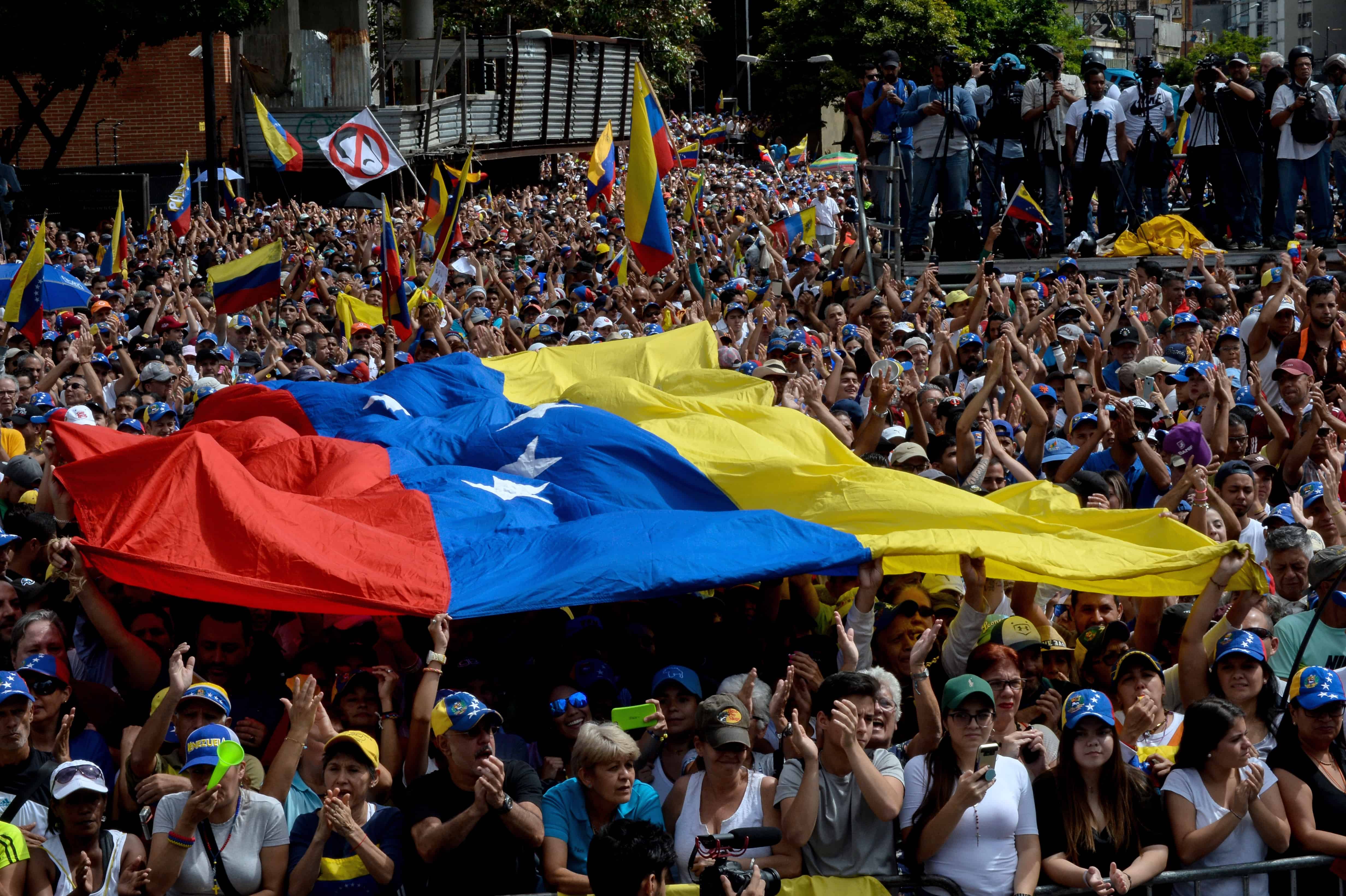Venezuelan opposition chief Juan Guaido declared himself acting president in January 2019, vowing to remove President Nicolas Maduro and quickly getting support from the United States and around 50 other countries.
On Tuesday he claimed to have also secured the backing of Venezuelan soldiers, while the country’s leftist government said an attempted coup was under way.
Here is a recap of developments.
– ‘Acting president’ –
Guaido declares himself acting president at a January 23 rally of tens of thousands of people in Caracas demanding that Maduro quit.
Maduro started a second term on January 10 after opposition-boycotted elections dismissed as fraudulent by the United States, European Union and Organization of American States.
Guaido vows to “end the usurpation” of power by Maduro, form a transitional government, and hold free elections.
US President Donald Trump immediately recognizes Guaido as acting president, as do Canada and major Latin American powers.
Maduro gets the support of allies including China, Russia, Turkey, Mexico and Cuba.
– Guaido wins European backing –
On January 26 six European countries say they will also recognize Guaido unless Maduro calls elections.
Washington imposes sanctions on Venezuela’s state oil company PDVSA and hands control of the country’s US bank accounts to Guaido.
The Venezuelan judiciary bars Guaido from leaving the country and freezes his accounts.
On January 30 thousands of opposition protesters, led by Guaido, call on Venezuela’s military to abandon Maduro.
He demands that the Venezuelan government allow in foreign humanitarian aid, claiming the lives of thousands of people are at risk.
On February 4 some 20 European countries also recognize Guaido.
– Battle over aid –
Trucks loaded with US aid begin arriving on the Colombian side of the Tienditas border bridge on February 7.
Venezuelan troops however block the road, preventing the aid from entering.
Maduro slams what he says is a “spectacle of fake humanitarian aid,” seeing it as the precursor of a US military intervention.
On February 16 Guaido says he has the support of thousands of people to bring in aid via Colombia, Brazil and the Dutch island of Curacao.
Venezuelan officials close the maritime border and suspend links with Curacao. On February 21 Maduro shuts the border with Brazil.
On February 22 Russia also accuses the United States of using aid deliveries as a ploy for military action.
It says it is stepping up shipments of wheat and is considering sending more medical supplies after shipping 7.5 tonnes.
– Guaido regional tour –
On February 23 Guaido attends an aid benefit concert organized by British billionaire Richard Branson on the Colombian side of the Tienditas border bridge.
He claims Venezuelan soldiers helped him out of the country despite a travel ban.
Guaido goes on to meet US Vice President Mike Pence and then allies in Brazil, Argentina, Paraguay and Ecuador.
Defying threat of arrest, he flies home on March 4, greeted by thousands of supporters chanting “Yes, you can!”
– Blackouts –
On March 7 most of Venezuela is plunged into darkness by a major power cut that lasts five days, followed by sporadic blackouts.
It causes major disruption to food and water supplies, transport and hospitals which report deaths. Maduro blames sabotage; experts say poor maintenance is the cause.
On March 24 two Russian military planes bring in around 100 soldiers and 35 tons of equipment.
Guaido’s parliamentary immunity is removed on April 2, opening the way for his prosecution for claiming to be president.
– Military showdown –
On April 30 Guaido releases a video recorded at a Caracas air force base in which he says he has the support of “brave soldiers.”
With him is a group of uniformed men and opposition politician Leopoldo Lopez who says he was freed from house arrest by soldiers supporting Guaido.
The government denounces an “attempted military coup.”
Hundreds of opposition supporters flock into the streets, some gathering outside the Caracas base.






